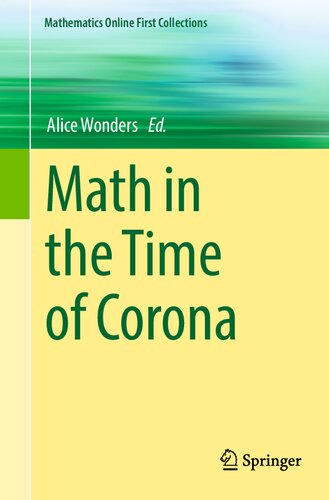

Most ebook files are in PDF format, so you can easily read them using various software such as Foxit Reader or directly on the Google Chrome browser.
Some ebook files are released by publishers in other formats such as .awz, .mobi, .epub, .fb2, etc. You may need to install specific software to read these formats on mobile/PC, such as Calibre.
Please read the tutorial at this link: https://ebookbell.com/faq
We offer FREE conversion to the popular formats you request; however, this may take some time. Therefore, right after payment, please email us, and we will try to provide the service as quickly as possible.
For some exceptional file formats or broken links (if any), please refrain from opening any disputes. Instead, email us first, and we will try to assist within a maximum of 6 hours.
EbookBell Team

5.0
88 reviewsThe title of this book, Math in the Time of Corona, has been drawn from the highly acclaimed novel by Gabriel García Márquez, Love in the Time of Cholera. The volume editor, Alice Wonders, holds a fictitious name that represents the mathematics publishing group at Springer Nature. Undeterred by disasters, so many mathematical and scientific discoveries have been made during times of duress or confinement. Unlike most any other subject, mathematics may be researched from anywhere. Covid-19, like Cholera, implementation of vaccinations have been uneven throughout the globe since the beginning of 2021. However, there has been a renewed hope for a return to normalcy though the timing will no doubt vary worldwide. Essays in this volume vary in topic and are written by members of the greater mathematics community, hence the use of “Math” in the book title. They recount or describe significant or noteworthy discoveries, musings, award winnings, eureka moments, challenges, solutions, inspirations, etc. that have resulted from, or have occurred during, an unprecedented global pandemic. Several of the authors have been involved in starting new research and devising new methodologies related to society’s response to the outbreak and its ability to self-organize during a dramatic and complex situation. Some contributions describe how mathematical models and the management of big data have proved to be fundamental tools for the interpretation of epidemic activity and development of coping mechanisms.